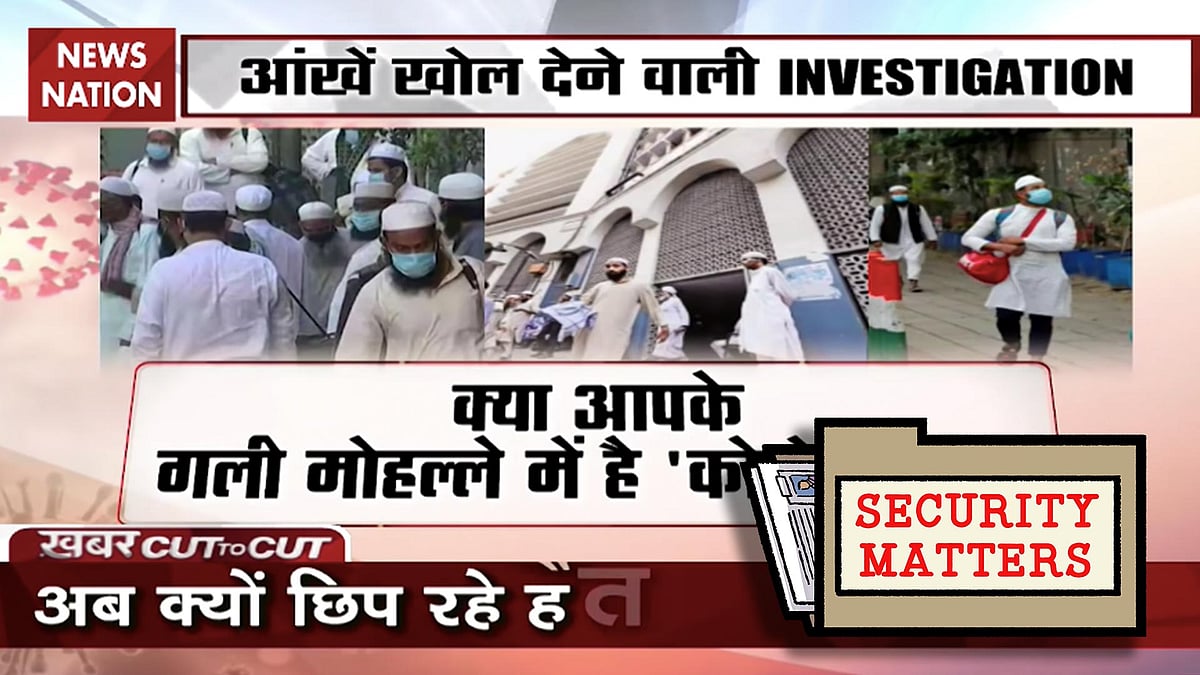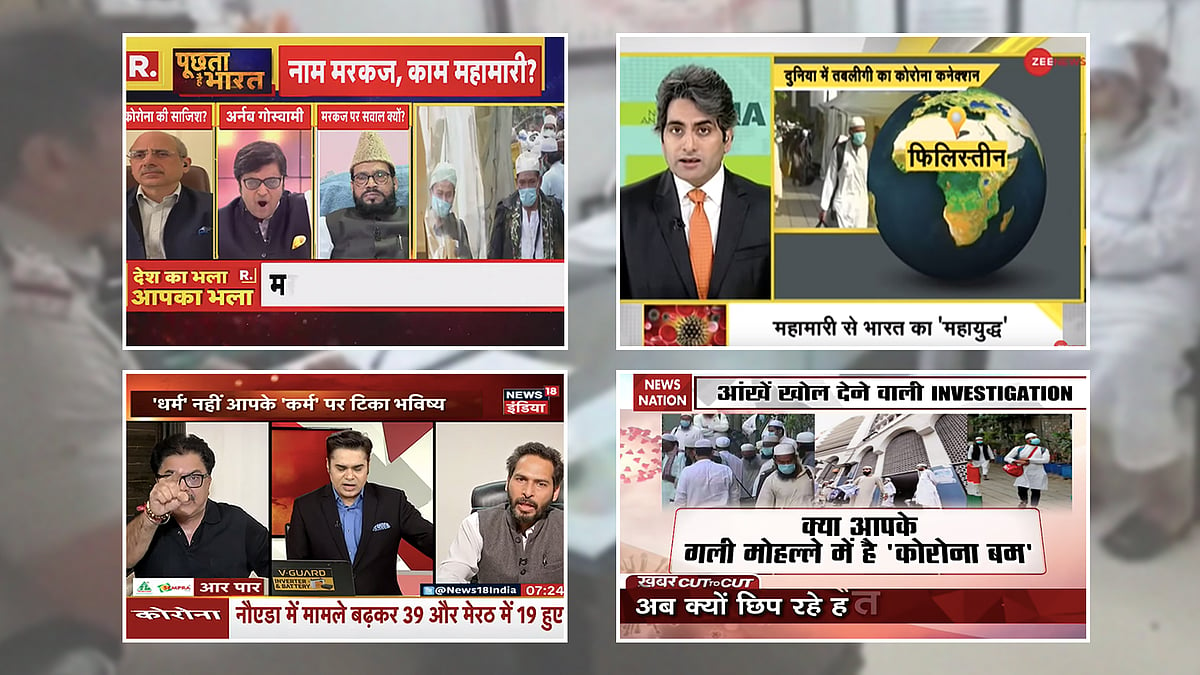Coronavirus: How Bihar is dealing with Tablighi Jamaat’s Nizamuddin congregants
Police say at least 86 people from Bihar attended the event in Delhi. And 57 foreigners who were at the congregation have arrived in the state as well.
On March 31, a police team visited a mosque at Gidarganj village in Jhanjharpur subdivision of Madhubani district in Bihar to check whether anyone present there had attended the Tablighi Jamaat congregation in Delhi’s Nizamuddin and whether the 21-day lockdown norms were being followed. Following the police visit, a group owing allegiance to the Tablighi Jamaat allegedly attacked the police with stones. Media reports say that four cops, including a circle officer and a woman constable, were injured in the attack and two vehicles were damaged.
“Stones were pelted at police when they went to check if any attendee of Delhi’s Tablighi Jamaat event was staying at the mosque,” Jhanjharpur’s deputy superintendent of police, Amit Sharan, told the media. Madhubani’s district magistrate, Nilesh Ramchandra Deore, said following the attack, additional police force had to be sent to bring the situation under control. The district’s superintendent of police, Satya Prakash, said it wasn’t clear whether any of those present at the mosque had attended the event in Delhi. He added that out of 45 suspects named in the FIR, four had been detained.
Four days later, in Darbhanga, two persons – Mohammad Salim and Mohammad Jaifee – were booked for allegedly hiding 10 foreigners in a mosque. Darbhanga’s senior superintendent of police, Babu Ram, said the police were alerted about a foreign national hiding in the mosque after attending the Nizamuddin event. When a police team reached the mosque, investigation revealed that about 10 Myanmar nationals had been provided shelter illegally in the mosque until March 21. "They didn’t inform the local intelligence office or the SSP’s office about their arrival in the Darbhanga town and their guides hid their movement from authorities, which was also a violation of the Foreigners Act,” the SSP explained to the media.
These two incidents show some of the challenges that the Bihar police are facing in its attempt to track the attendees of the Tablighi Jamaat congregation in the state. Early this month, the home department received a list of at least 86 residents of the state who had attended the Nizamuddin event. Gupteshwar Pandey, the Bihar police chief, told the media that in addition to these 86 people, at least 57 foreign nationals had returned to the state after attending the event.
The police have also learnt that a few attendees from Bihar are now in the other states. So, they are coordinating with police in other states to locate them. Some of them have been quarantined. According to the police chief, 48 attendees of the congregation have been quarantined already. However, as more information comes out, the number of attendees from the state might grow and as might the number of those who would need to be quarantined.

The police are mainly using phone surveillance and door-to-door visits to trace the attendees. Given that the phones of a few suspects are switched off and the numbers of some are not registered in their own names, this isn’t going to be a smooth task. The state government has instructed district administrations to trace and test the attendees, and quarantine them.
The attendees are likely to be concentrated in North Bihar districts with large Muslim populations – Samastipur, Supaul Madhubani, Darbhanga, Hajipur, Sitamarhi – and particularly the Seemanchal part of the region, including Kishanganj, Araria, Katihar, Purnea. According to government sources quoted in local media reports, at least 36 of the attendees are from the north districts. Another 31 are believed to be from Buxar, Patna and Gaya districts. There could be some attendees from the remaining districts too.
The other challenge for the police is to trace the foreign nationals who attended the event in Nizamuddin. The list of 57 foreign attendees the state government has received include citizens of Malaysia, Kyrgyzstan, Indonesia, and Bangladesh. Some news reports have quoted state intelligence agencies saying that 30 foreign Muslim preachers have been located so far. In Hajipur district alone, the daily Hindustan reported, 10 preachers from Kyrgyzstan were seen last month. In Dumraon, Buxar, seven Indonesians and four from Malaysia were detained and subsequently quarantined. In Araria district, a Malaysian Muslim preacher, Mohammad Khairani Bin Lookman, died within five days of arriving in the district on March 21. Subsequently, the district administration has quarantined the other nine preachers who accompanied him.
The state government has now reiterated the enforcement of the rule that every foreign national on tourist visa must provide information about their presence to the nearest police station or the superintendent of police’s office.
The state health department seems alert to the risk of spread if the attendees of the Nizamuddin event aren’t put under timely quarantine. The scale of the spread from this source in Delhi has cautioned them. This is what Sanjay Kumar, principal secretary, health department, said in response to a journalist’s tweet about the share of the Nizamuddin congregation attendees in a single day spike in Covid-19 cases in Delhi.
Last week also witnessed some Muslim organisations such as Imaraat Shariah urging Muslims to go for health checks and follow the due process. Patna editions of dalies like the Hindustan Times carried reports of Anees-ur-Rehman Qasmi, general secretary of the Phulwari Sharif-based organisation, asking the Nizamuddin attendees to voluntarily seek health checks to ensure their wellbeing as well as of their families and the society at large. Similarly, Bihar State Sunni Waqf Board chairperson Mohammad Irshadullah emphasised the need for precaution and stated that he had himself locked mosques in the state capital. From the medical fraternity, DR AA Hai, a well known surgeon, urged all to cooperate with screening teams. Academics like Prof Parvez Ahmad also stressed this message. “There is no point evading treatment as it would only aggravate ailments,” Ahmad was quoted as saying in the Hindustan Times.
The coming weeks would be crucial for the state government, particularly the Bihar police in tracing the Nizamuddin event attendees and ensuring the risk of the viral spread is minimised. In doing so, the state police would need the active coordination and cooperation of its counterparts in other states, the support of civil society groups, and civic understanding.
 Here’s what most TV news anchors are not telling you about the Tablighi Jamaat
Here’s what most TV news anchors are not telling you about the Tablighi Jamaat
 Coronavirus and Nizamuddin: TV news returns to bigotry with a bang
Coronavirus and Nizamuddin: TV news returns to bigotry with a bang
